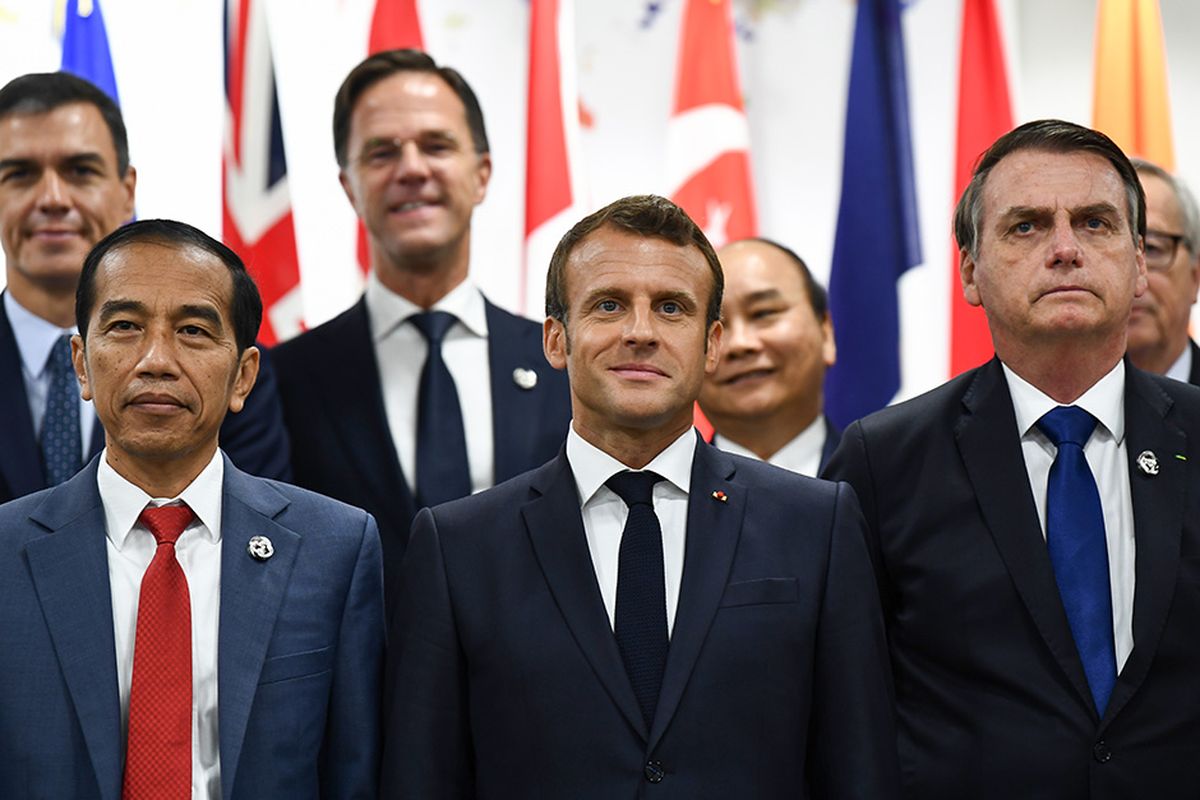Baca berita tanpa iklan. Gabung Kompas.com+
Pay Later: G20 Extends Debt Relief for Developing Countries

The Group of 20 (G20) nations agreed to extend debt relief for another six months to support poor nations in their fight against the coronavirus pandemic.
Editor Cantika Rustandi
Oxfam and other groups are also calling for private lenders and investment funds to make similar concessions for the poorest countries by suspending their debt repayments.
The G20, in a final communique, also urged private lenders to join its initiative for debt suspension during the coronavirus pandemic.
“We are disappointed by the absence of progress of private creditors’ participation” in the debt relief, “and strongly encourage them to participate on comparable terms when requested by eligible countries,” it said.
(Writers: Martin Crutsinger, Aya Batrawy)
Simak breaking news dan berita pilihan kami langsung di ponselmu. Pilih saluran andalanmu akses berita Kompas.com WhatsApp Channel : https://www.whatsapp.com/channel/0029VaFPbedBPzjZrk13HO3D. Pastikan kamu sudah install aplikasi WhatsApp ya.
There are no comments
Comment wisely and responsibly. Comments are entirely the responsibility of the commentator as regulated in the ITE Law
Thank You! We have received your report. We will remove comments that conflict with the Community Guidelines and the ITE Law.
More Headlines
Business
August 25, 2023, 07.58 PM
Taiwan's Semiconductor Industry: A Rising Powerhouse with Global Impact
News
April 14, 2023, 11.48 AM
3 Malaysian Nationals Missing after Boat Capsizes Near Indonesia’s Side of Borneo
News
April 13, 2023, 01.56 PM
Indonesia to Deploy Warships during ASEAN Summit in East Nusa Tenggara
News
April 12, 2023, 02.32 PM
Jakarta High Court Rejects Appeal of Ex-Police General Ferdy Sambo Facing Death Sentence
News
April 11, 2023, 05.26 PM
Indonesia Religious School Principal Named Suspect in 14 Students' Sexual Abuse
Culture
April 8, 2023, 05.52 PM
Centuries-old Indonesian Easter Tradition Returns after Pandemic Hiatus
News
April 8, 2023, 05.35 PM
Access to ASEAN Air Transportation Drives Bali's Tourism, Says Statistics Indonesia
Baca berita tanpa iklan. Gabung Kompas.com+
Baca berita tanpa iklan. Gabung Kompas.com+
IN CASE YOU MISSED
Baca berita tanpa iklan. Gabung Kompas.com+
Baca berita tanpa iklan. Gabung Kompas.com+


































